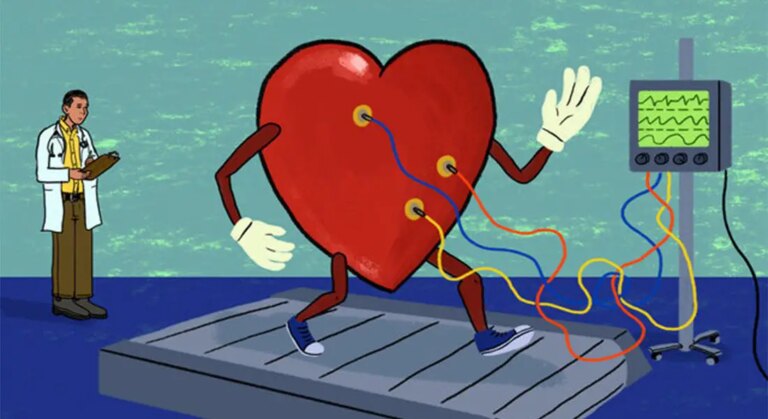Imagine running a marathon in the scorching heat, pushing your body to its limits, or maybe just battling a stomach bug that’s knocked you off your feet. You’re sweating and tired, and suddenly, you feel a wave of dizziness and a cramp seizes your leg muscles. It’s not just exhaustion or illness at play here – these are classic signs your body is crying out for electrolytes. These essential minerals do more than just quench thirst – they power our very cells, keep our hearts beating rhythmically and our muscles moving smoothly. But what exactly happens when these vital nutrients fall below the necessary levels?
What Are Electrolytes and Why Are They Essential?
Electrolytes are often talked about in the context of sports drinks and hydration, but their importance extends far beyond just replenishing what’s lost in sweat. They are, in fact, electrically charged minerals that play a pivotal role in nearly every bodily function. These minerals include potassium, sodium, calcium, magnesium, chloride, phosphate, and bicarbonate—each serving crucial roles that help keep the body’s systems in harmony.
- Nerve Function: Electrolytes are vital for the transmission of electrical impulses along nerve cells. Sodium and potassium, for example, work together to create a charge that activates nerve impulses. This is essential not just for muscle contractions and reflexes but also for heart function, digestion, and brain activities.
- Muscle Function: Ever had a muscle cramp and reached for a banana? That’s because the potassium in the banana helps restore a vital electrolyte balance necessary for muscle contractions and relaxation. Calcium, too, plays a key role here, facilitating the smooth interaction of muscles and nerves.
- Hydration: Electrolytes influence the body’s hydration levels by regulating the movement of fluids in and out of cells. Sodium and potassium help maintain fluid balance across cell membranes, ensuring that your cells don’t swell or dehydrate by balancing the amount of water that comes in and out.
- Acid/Base Balance: Electrolytes are critical in maintaining the pH level of your blood within a narrow range. Bicarbonate, for instance, helps buffer the acids that build up during physical activity or from metabolism, preventing the blood from becoming too acidic or alkaline.
- Regulating Blood Pressure: Electrolytes like sodium have a direct effect on blood pressure. While too much sodium can lead to high blood pressure, a balanced intake helps regulate this crucial health metric.
- Heart Health: The heart requires a precise balance of electrolytes such as potassium, calcium, and magnesium to maintain proper heart rhythm. Any imbalance can lead to arrhythmias or, in extreme cases, cardiac arrest. Electrolytes facilitate the electrical currents that drive the heart’s pumping action, making their balance essential for cardiovascular health.
The interplay of these electrolytes is what keeps your heart beating, your muscles moving, and your brain functioning. They are so fundamental to our well-being that even slight imbalances can affect health dramatically, manifesting in symptoms like fatigue, confusion, and muscle cramping.

Key Electrolytes You Should Know About and What Happens When There Are Imbalances
Electrolytes are minerals in your body that carry an electric charge. They are found in your blood, urine, tissues, and other body fluids. Electrolytes are essential for a multitude of body functions, including nerve signaling, muscle contractions, and maintaining fluid balance. Here are some of the most crucial electrolytes and the potential effects of not getting enough of them.
Sodium
One of the most well-known electrolytes, sodium is vital for fluid balance, nerve transmission, and muscle function. It helps regulate blood pressure and volume and is a key player in the function of nerves and muscles. However, it’s important to manage sodium intake, as too much can lead to high blood pressure, which is a risk factor for heart disease.
Hyponatremia (Low Sodium): Rapidly falling sodium levels can cause headaches, confusion, seizures, and even brain swelling. This condition often arises from drinking too much water without adequate sodium intake, diluting the body’s sodium concentration.
Potassium
This electrolyte works closely with sodium to help generate nerve impulses, regulate fluid levels within the body, and control muscle contractions and heart rhythms. Low potassium levels can cause weakness, fatigue, and heart irregularities.
Hypokalemia (Low Potassium): A deficiency in potassium can lead to noticeable physical symptoms such as fatigue, muscle weakness, cramps, and more seriously, arrhythmias. These symptoms occur because potassium is critical for muscle function and heart rhythm regulation.
Calcium
Best known for its role in bone and teeth health, calcium is also crucial for blood clotting, nerve transmission, and muscle contraction. An imbalance in calcium can lead to muscle spasms and has been associated with heart failure and high blood pressure.
Hypocalcemia (Low Calcium): Insufficient calcium can trigger numbness, tingling in the fingers, muscle cramps, convulsions, and in severe cases, mental confusion or heart palpitations, reflecting its role in nerve transmission and muscle contraction.
Magnesium
Magnesium supports over 300 biochemical reactions in the body, including muscle and nerve function, immune system support, and keeping the heartbeat steady. It also helps regulate blood glucose levels and aids in the production of energy and protein.
Hypomagnesemia (Low Magnesium): Low magnesium levels can result in muscle twitches, tremors, cramps, seizures, personality changes, and abnormal heart rhythms, all symptomatic of its widespread role in cellular reactions and processes.

Chloride
This electrolyte helps keep the amount of fluid inside and outside of your cells in balance. It aids in maintaining blood volume, blood pressure, and pH of your body fluids. Most dietary chloride comes from table salt.
Hypochloremia (Low Chloride): Chloride imbalances can cause dehydration, loss of fluid balance, and metabolic alkalosis, where the body becomes too alkaline due to excessive loss of stomach acid, often through vomiting or prolonged sweating.
Phosphate
This electrolyte helps manage the body’s energy storage and usage, particularly in the form of ATP, the body’s energy currency. It is also important for building and repairing bones and teeth, helping nerves function, and making muscles contract.
Hypophosphatemia (Low Phosphate): Phosphate deficiency can lead to muscle weakness, joint and bone pain, irregular breathing, irritability, and anxiety, impacting energy production and the buffering capacity that maintains the body’s acid-base balance.
Bicarbonate
This electrolyte helps maintain the pH balance in your blood, ensuring it does not become too acidic or too alkaline. It is naturally produced by the body and also can be taken in through the diet.
Metabolic Acidosis (Low Bicarbonate): When bicarbonate levels are too low, the blood can become too acidic, causing rapid breathing, confusion, fatigue, and headache. Severe acidosis can disrupt the function of various organs and systems.
What Causes Electrolyte Imbalances?
Electrolyte imbalances can stem from a variety of sources, often related to changes in body fluids or alterations in the body’s normal processes. Here are some common causes of electrolyte imbalances:
- Dehydration: Losing body fluids through prolonged sweating, diarrhea, or vomiting can lead to significant losses in electrolytes such as sodium, chloride, and potassium. Dehydration is one of the most common causes of electrolyte imbalances.
- Overhydration: Conversely, consuming too much water can dilute the concentration of electrolytes in the body, particularly sodium, leading to a condition known as water intoxication or hyponatremia. This can happen during endurance sports or when large amounts of water are consumed in a short time without adequate electrolyte replacement.
- Kidney Disease: The kidneys play a critical role in regulating electrolyte levels. Diseases affecting the kidneys can disrupt their ability to maintain the balance of electrolytes such as potassium, phosphate, and magnesium, leading to either an excess or a deficiency.
- Medications: Certain medications can affect electrolyte levels. Diuretics, for example, commonly cause imbalances in potassium and sodium levels. Other drugs, like ACE inhibitors or corticosteroids, can also alter electrolyte balance as a side effect.
- Dietary Factors: Poor dietary choices or malnutrition can lead to deficiencies in key electrolytes. For instance, a diet low in potassium-rich foods like bananas, potatoes, and spinach can result in hypokalemia, while excessive consumption of processed foods high in sodium can lead to hypernatremia.
- Hormonal Imbalances: Hormones such as aldosterone and parathyroid hormone help regulate electrolyte levels. Any condition that alters the levels of these hormones, such as Addison’s disease or hyperparathyroidism, can disrupt electrolyte balance.
- Acid-Base Imbalances: Conditions that alter the body’s pH level, like metabolic acidosis or alkalosis, can indirectly affect electrolyte levels, particularly bicarbonate levels in the blood.
Understanding these triggers is crucial for both preventing and treating electrolyte imbalances. Being aware of the risk factors and early symptoms can help guide appropriate dietary choices, hydration strategies, and medical interventions to maintain or restore the delicate balance of electrolytes essential for health.

My Personal RX on Keeping Your Electrolyte Levels Healthy
Whether you’re training for a marathon, tackling a mountain, or just managing a busy daily schedule, keeping your electrolytes in balance is key to maintaining your health and vitality. Here are my personal recommendations as a doctor to ensure your body has the right amount of these vital minerals, allowing you to perform at your best every day.
- Stay Hydrated: Drink adequate amounts of fluids daily to maintain hydration without overdoing it. The amount of water you need can depend on your activity level, the climate you live in, and your overall health. A good general rule is to drink enough so that your urine is light yellow in color.
- Balance Your Water Intake with Electrolytes: If you are engaging in prolonged physical activity or find yourself in hot climates, enhance your hydration strategy by including electrolyte-rich sports drinks or natural alternatives like coconut water, which contain not just fluids but also essential electrolytes.
- Incorporate Super Greens: Adding a scoop of Super Greens to your daily routine can help replenish electrolytes naturally. Super Greens powders typically contain a blend of nutrient-dense plants like spinach and kale, which are excellent sources of potassium and magnesium.
- Limit Diuretics: Beverages like coffee and alcohol can increase urine production and promote the loss of electrolytes. If you consume these, do so in moderation and counterbalance their effects by drinking extra water and consuming electrolyte-rich foods.
- Eat a Balanced Diet: Consume a varied diet rich in fruits, vegetables, whole grains, and lean proteins to ensure you get a healthy balance of electrolytes. For instance, bananas and sweet potatoes are high in potassium, dairy products and leafy greens are good calcium sources, and nuts and seeds can provide magnesium
- Monitor Salt Intake: Sodium is a vital electrolyte, but it’s often consumed in excess. Aim for a balanced intake by reducing high-sodium processed and fast foods, and flavoring dishes with herbs and spices instead of extra salt.
- Consider Supplements Carefully: If you suspect an electrolyte imbalance or have unique health needs, supplements might help. For example, magnesium supplements can benefit those with frequent muscle cramps or individuals on certain medications that deplete magnesium. Always consult with a healthcare provider before starting any supplements.
- Use My Protocol to Guide Your Dietary Choices: Follow my comprehensive Protocol for holistic health recommendations to tailor your electrolyte consumption to your personal health needs and activity levels.












 Subscribe to Ask Dr. Nandi YouTube Channel
Subscribe to Ask Dr. Nandi YouTube Channel









